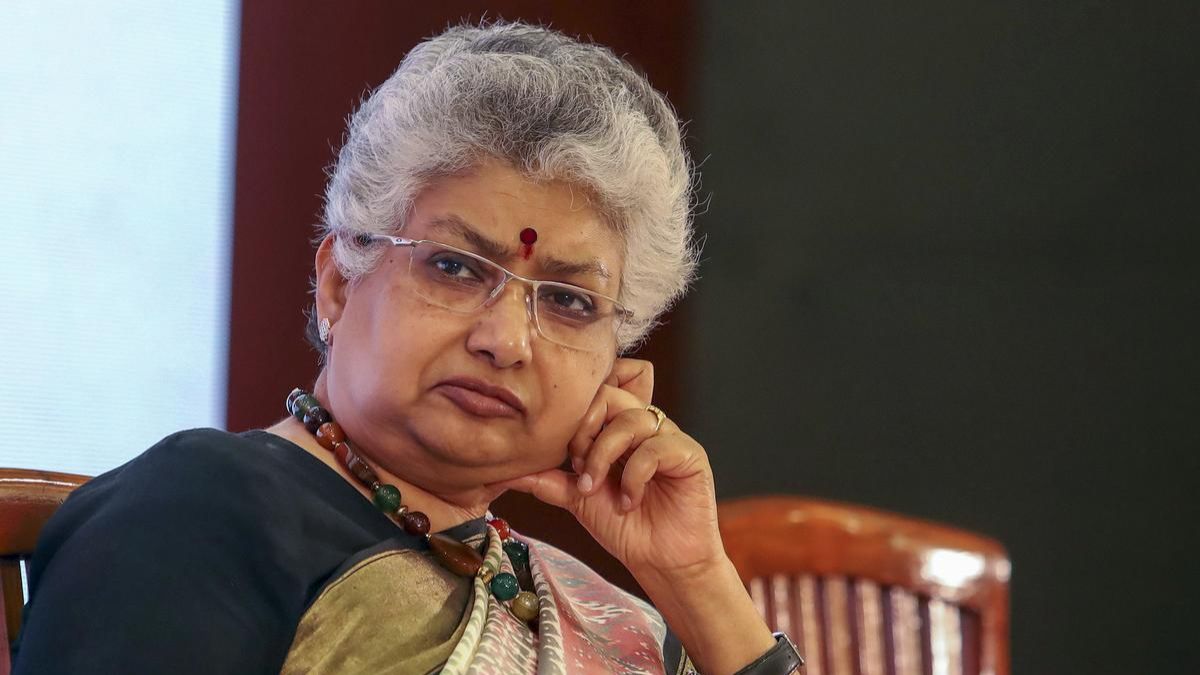Law must be a bridge, not a fortress for the powerful: Justice B V Nagarathna to NLU graduates

At the 12th Convocation of NLU Delhi, Supreme Court judge Justice B.V. Nagarathna urged fresh graduates to look beyond careers and paychecks, reminding them that a law degree is not just a passport to the profession but a pledge to the Constitution and the people it serves.
She called upon the young lawyers to see themselves as custodians of India’s democratic promise, stressing that the true measure of their success would not lie in corner offices or lucrative briefs, but in how effectively they use law as a bridge between power and the powerless.
NLU Delhi was ranked second in the country for the eighth consecutive year under the National Institutional Ranking Framework (NIRF).
“This scroll handed over to you today affirms your readiness to enter a profession that sustains the constitutional order, protects individual freedoms, and upholds justice and equity,” she said. “It is up to you to evince your willingness to practice constitutional conduct.”
Lawyers as public servants, not just professionals
Justice Nagarathna cautioned against reducing law to a mere career path or lucrative option in an age of booming commerce.
“Legal training equips you with power, the power to interpret, argue, persuade, and decide. But with this power comes a trust that you will use your skills not just in pursuit of private gain but in service of public good,” she told the graduating class.
She drew from Dr. B.R. Ambedkar’s last speech in the Constituent Assembly, stressing that even the best Constitution fails if worked by the wrong people. “You, as lawyers, are stewards of the Constitution for life. Every time you enter a courtroom, draft a contract, or teach a class, you engage in a public act infused with moral consequences,” she urged.
Law as a bridge, not a fortress
Rejecting the notion that the law serves only the privileged, Justice Nagarathna asked graduates to ensure that justice is not denied due to a lack of access.
“Too often, the law is seen as a fortress accessible only to the powerful. But in your hands, it must become a bridge between rights and remedies, between the Constitution and the citizen, between justice and the people,” she said.
Integrity as the Cornerstone
“The foundation is integrity. It is built not in a day but over years, in every choice you make, in every argument you decline to twist, in every opportunity you forgo because it compromises your principles,” she said.
Recalling Justice Chagla and Mahatma Gandhi’s approach to law, she underlined the importance of practising with conscience. “It is not impossible to practice law without compromising truth,” she said, urging young lawyers to resist temptations of technicalities that may subvert justice.
Justice Nagarathna coined the phrase “constitutional intergenerational equity” to describe the responsibility of passing on values of justice, equality, and liberty to future generations.
“Every generation of lawyers must take the vitality and belief in constitutional values to every corner of the nation. That responsibility now passes to you,” she said.
She urged graduates to see themselves as translators of the Constitution in people’s lives, whether by offering pro bono services, working in legal aid clinics, or participating in civic discourse with clarity and civility. “Justice neither begins nor ends in courtrooms—it is lived or denied in the everyday experiences of people,” she reminded.
A Call Beyond Careers
Closing her address, Justice Nagarathna told the graduates that success must be measured not merely in financial terms but in the positive impact they make on society.
“Build institutions, not just careers. Serve not only individual interests but collective aspirations. May you wield the law not as a weapon of exclusion but as a bridge of inclusion,” she said.
India